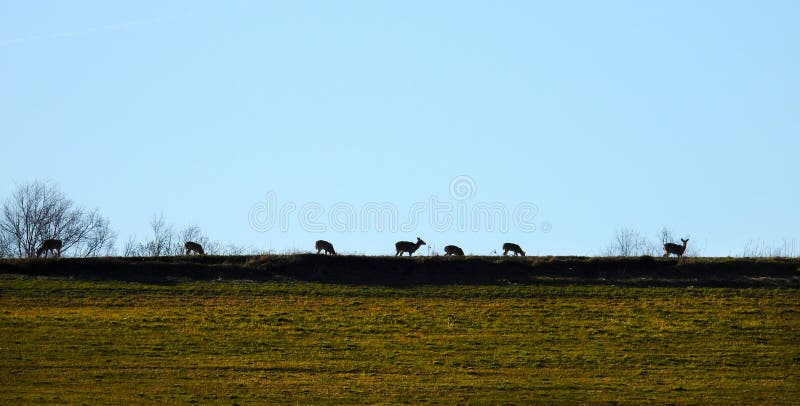
Whitetail deer herd on horizon graze a harvested corn field
White-Tailed Deer normally find the most to eat in edges, or transition zones between forest and more open habitat types, where there is an abundance of low woody and herbaceous vegetation. The current pattern of human land use is ideal for creating and sustaining high-density deer populations. Open areas such as residential developments and agricultural fields are interspersed with forested areas, providing plentiful edge habitat as well as a variety of nutritious crops and ornamental plantings. This supplements the natural food available to deer. Crop damage by deer was a significant factor affecting the profits of farmers. Many parts of New York are considered high-risk areas for human infection with Lyme disease, based on the density of infected ticks.
View Full Image on Dreamstime
Username: Mccrainemercantile
Editorial: No
Width: 4608 pixels
Height: 2336 pixels
Downloads: 0
Image ID: 275479848